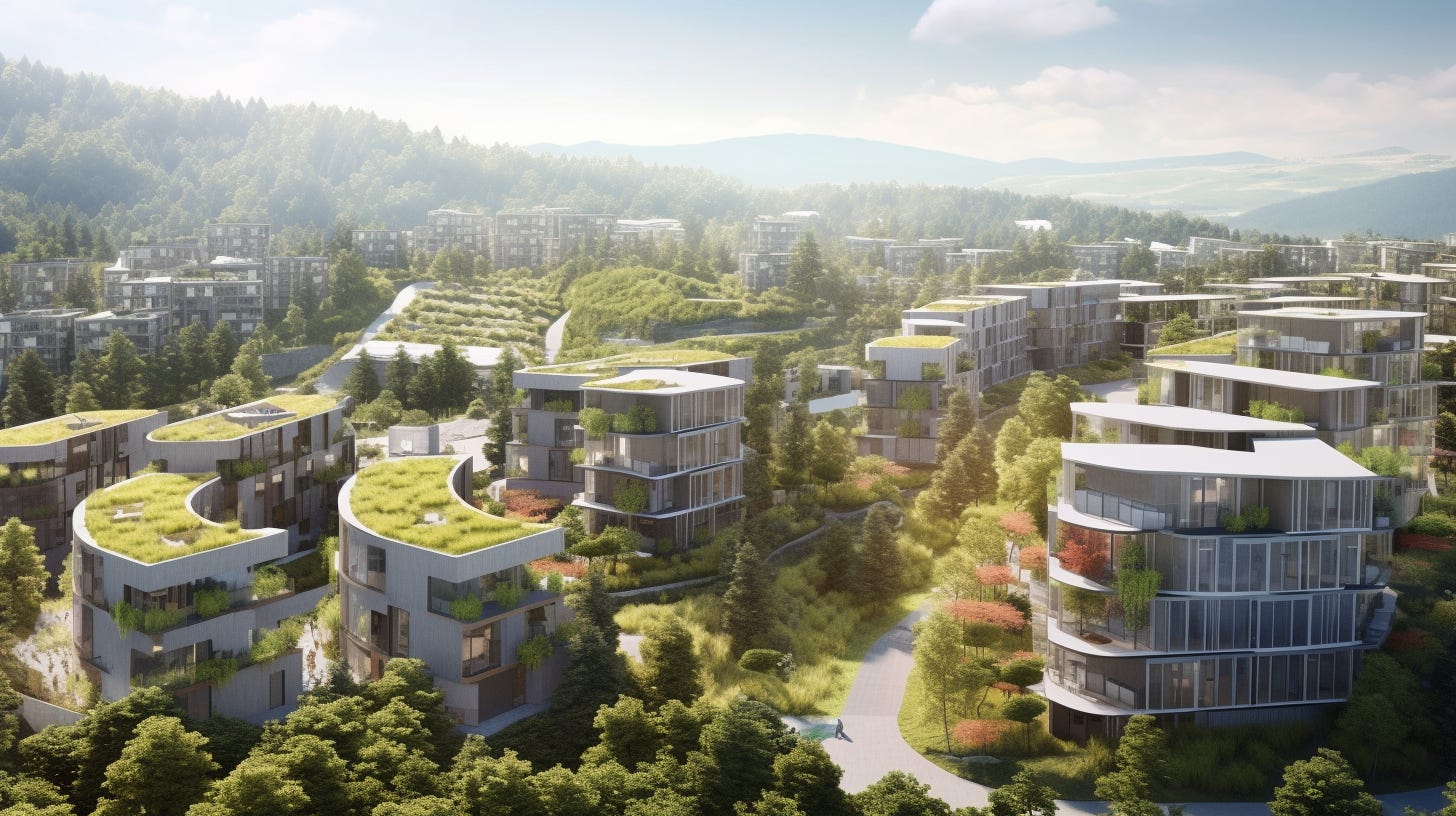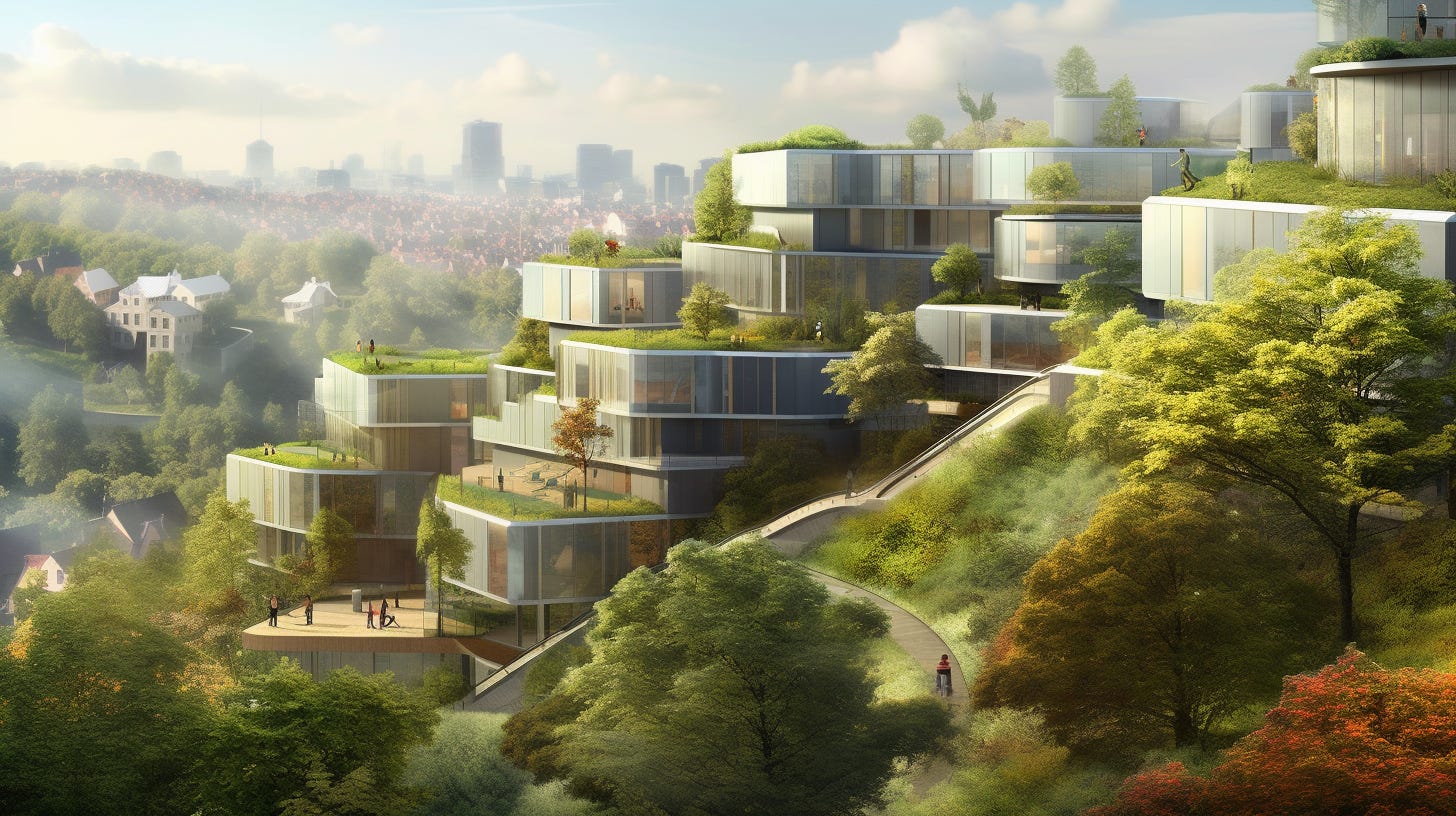Bring Forest Park to the City
A New Vision for the Former ESCO Site
The former ESCO steel site, located between NW Vaughn Street and NW Nicolai Street, west of Highway 30, has been home to manufacturing operations for decades. Its sprawling expanse once echoed with the hum of industry and machinery, providing jobs and livable wages to the residents of Northwest Portland. However, as operations have been phased out over the years, this plot, an industrial landmark, now lies dormant, ready for the city to write its next chapter.
ESCO's redevelopment offers a unique and critical opportunity for urban renewal, one that the City of Portland is seizing with both hands as part of the MP2H Northwest Plan.
Portland’s leaders, urban developers, and most importantly, its residents, find themselves at a pivotal moment, not just in terms of urban planning, but in defining the identity they envision for their city.
As Portland contemplates the future of the ESCO site, the Bureau of Planning and Sustainability organized a design workshop last week at Friendly House to brainstorm possible themes that could guide the site's redevelopment. The workshop generated a trove of exciting ideas, each with its unique promise and potential.
Two design themes have gained traction recently: a Centennial theme and an Industrial theme. The Centennial theme aims to honor the Lewis and Clark Centennial Exposition of 1905, a landmark event that put Portland on the world map and catalyzed its growth. The Industrial theme pays homage to the ESCO Corporation's legacy and the city's industrial roots.
However, both of these themes, while valid in their respect, lack a vital element: a vision for a greener, more sustainable future.
Amid the ideas tabled during the workshop, one emerged with a fresh perspective, challenging the narrative, and boldly stepping into the territory of visionary urban planning. This was the Forest Park theme.
The Forest Park theme takes inspiration from the verdant expanse of Forest Park, our green haven stretching over 5,100 acres, one of the country's largest urban forest reserves. Forest Park is a beacon of the city's commitment to environmental conservation and sustainability.
The Forest Park theme proposes to transform the ESCO site into an urban, mixed-use neighborhood that emulates the rich greenery and ecological diversity of Forest Park. It advocates for green spaces interspersed with residential and commercial buildings, promoting a healthy balance between urban living and nature. It pictures the area as a vibrant, livable neighborhood, where Portland's residents can work, live, and play, all while surrounded by nature.
Picture walkable neighborhoods connected by tree-lined paths, interspersed with patches of green that serve as communal spaces. Commercial areas, too, are reimagined as green buildings, incorporating elements such as green roofs, rainwater harvesting, and renewable energy systems. It also could address several challenges that modern cities grapple with, such as urban heat islands, stormwater runoff, air and noise pollution, and the alienation of residents from nature.
In contrast to the Centennial or Industrial themes, the Forest Park theme offers a dynamic, forward-thinking approach to the ESCO site's redevelopment. It recognizes and addresses the pressing concerns of the 21st century—climate change, urbanization, social inequality—while simultaneously enhancing the site's beauty and functionality.
As Portland finds itself at a critical juncture, the decisions made for the ESCO site will reverberate through future generations. The Forest Park theme presents a bold yet attainable vision that captures the essence of Portland: a city inextricably connected to its natural surroundings. It is an opportunity to bring the tranquility and beauty of Oregon's forests into the heart of the city.
MORE INFORMATION:
Montgomery Park to Hollywood Transit and Land Use Development Study










